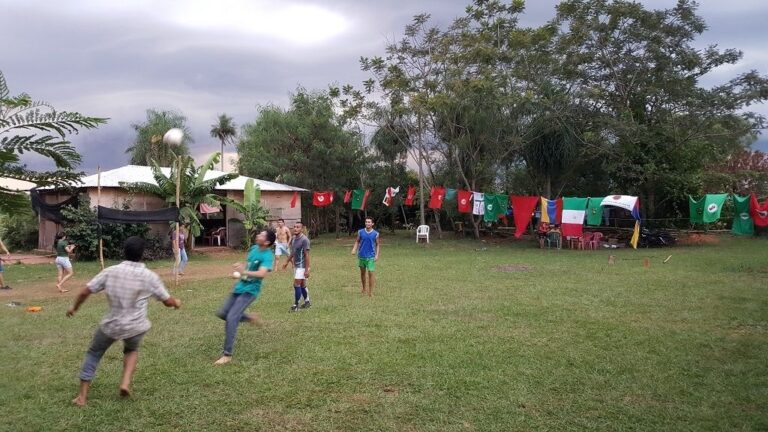
Almost two years after the COVID-19 outbreak, the pandemic is far from over, and its repercussions might last for months and years to come. Photo: Transformer18/Flickr.
Av: Ivette Nogués
After surpassing the threshold of 50% of the world population who have received at least one shot of a COVID-19 vaccine, some may feel like we are finally putting the pandemic behind us. However, many experts warn that the crisis is far from over – and that its long-term consequences are still very difficult to estimate.
19 december, 2021, Chronicle, English, Magazine

Werner Ustorf questions the increase of British nationalist politics since Brexit. Photo: Werner Ustorf/Flickr.
Av: Louise Ekelund
New forms of nationalistic features have been recognized the recent years in modern developed countries, inter alia northern European countries. Historically, it has shown that nationalist policies become more popular in conjunction with flourishing modern processes and revolutions. How come that humans find security and confidence in nationalist thinking when they get exposed to changes they can not influence by themselves?
17 december, 2021, Chronicle, English, Magazine
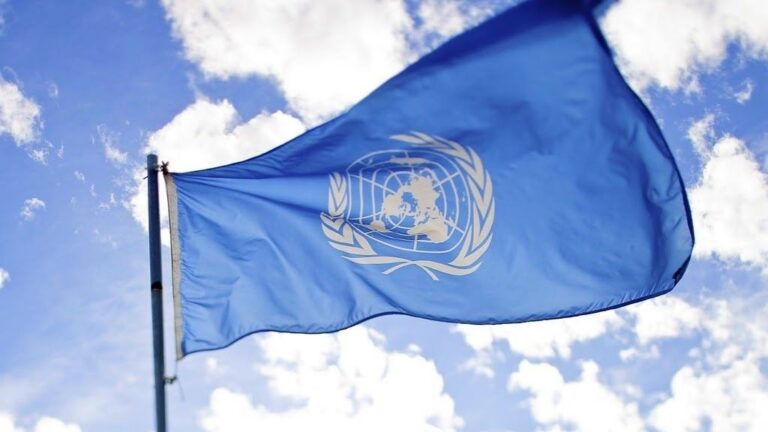
The development and humanitarian sector have long been aware of the issues with allegations of violence and abuses within the sector. Photo: Sanjitbaksji/Flickr.
Av: Emily Elderfield
Is the aid sector truly atoning for its sins? Great strides have been made, particularly over the last decade, to hold perpetrators of abuse and violence to account. Yet, new allegations of abuse show that we have a long way to go to keep everyone safe.
15 december, 2021, Chronicle, English, Magazine
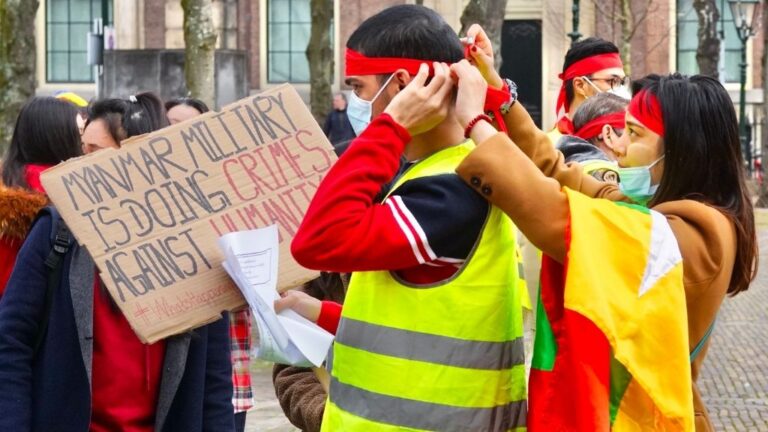
Protesters across Myanmar call for the release of political detainees and the restoration of democracy.
Photo: Roel Wijnants, Flickr
Av: Leni Lindemann
The recent military coup has re-ignited and exacerbated some of Myanmar’s long-running civil wars, pushing the country deeper into crisis. Pro-democracy resistance groups in the urban areas and rural ethnic insurgencies stand united in their war against the military regime. An inclusive democracy is necessary for long-term sustainable peace.
23 juni, 2021, Chronicle, English, Magazine
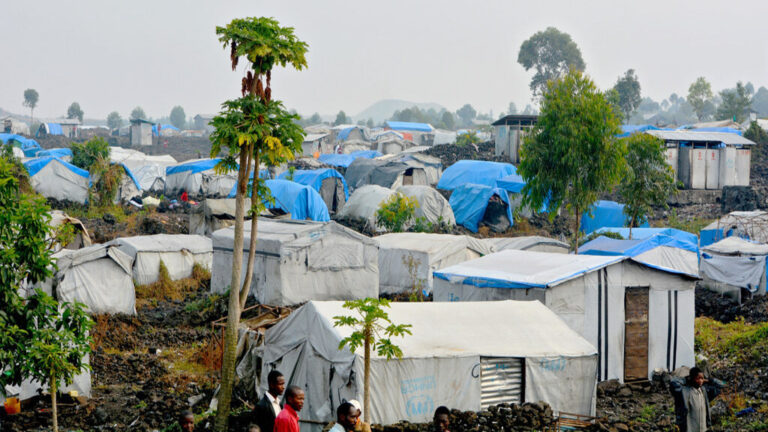
Camp for internally displaced people in Democratic Republic of Congo, 2017 Photo: UN Women/Carlos Ngeleka, Flickr
Av: Emily Elderfield
According to UNHCR, 1 percent of the world’s population is currently displaced due to conflict or persecution – that’s one in every 100 people who’ve been forced to leave home. When you think of civilians affected by conflict, you probably think of refugees fleeing their country in search of a safer life. However, many people […]
Läs mer »
23 juni, 2021, Chronicle, English, Magazine
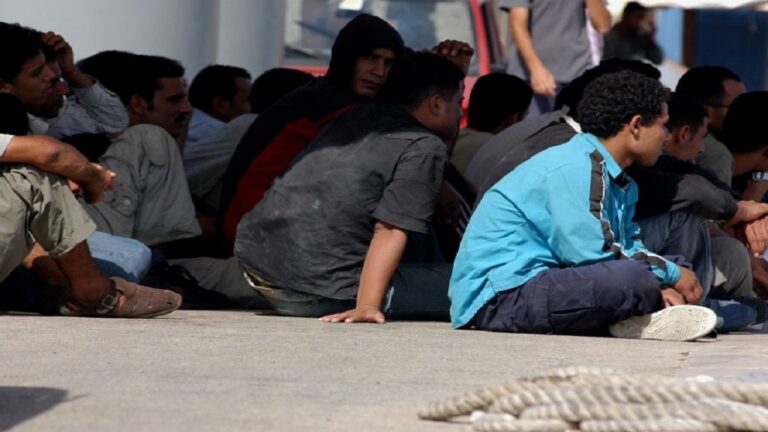
Migrants and refugees from Libya who survived the crossing of the Mediterranean
Photo: FUF Lund/Flickr
Av: Chiara D’Agni
A new hope for establishing protection of human rights in Libya is rising. But migrants and refugees still face critical conditions and the reconstruction of the country must address this.
22 juni, 2021, Chronicle, English, Magazine
Av: Julian Dannefjord
Since 2006, Instituto Agroecologico Latinoamericano, IALA, has trained campesinos, small-scale farmers, in agroecology in Latin America through popular education. This institution plays an important role in resisting industrial agriculture all over the region and provides a different perspective on rural development.
29 april, 2021, Chronicle, English, Magazine

Solar energy is often successfully used in small-scale renewable energy projects Photo: Berkeley Lab/Flickr.com
Av: Ian Granit
With the increasing focus on decarbonizing the world's energy systems, it is easy to forget that approximately a billion people worldwide live without access to electricity. Without it, clean water, transport, education, and many more aspects of everyday life become inaccessible.
27 april, 2021, Chronicle, English, Magazine
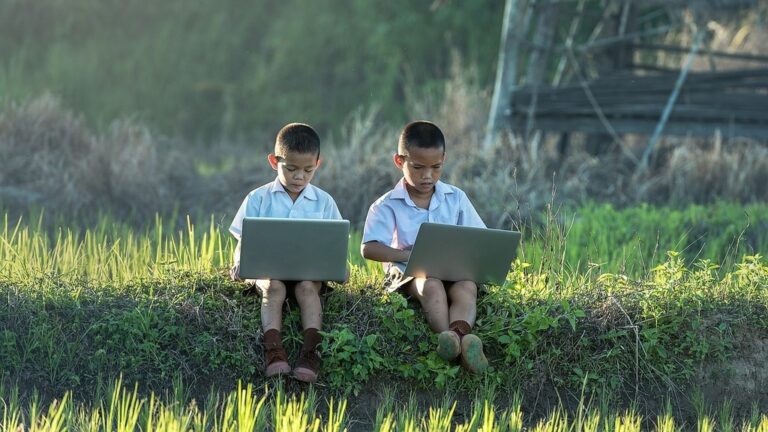
Rural areas face a double burden in securing traditional and digital literacy Photo: Pixabay
Av: Emily Elderfield och Larissa Lachmann
Living in rural areas can hugely affect children’s chances of completing education; UNICEF estimates that children in rural areas are more than twice as likely to not attend school compared to their urban peers. Luckily, travelling libraries are one way to ensure that people can enjoy reading, regardless of where they live.
27 april, 2021, Chronicle, English, Magazine

The variety of terms such as “best before”, “sell by”, “eat by”, “expires on” need simplification and tailoring to regional contexts to help reduce food waste. Photo: mnplatypus/Pixabay
Av: Alexandru Mocanu
The 2030 Agenda for Sustainable Development is calling for halving the global food waste. Although high-income economies are generally assumed to display more wasteful patterns, food waste hits the Global South the hardest.
26 april, 2021, Chronicle, English, Magazine







